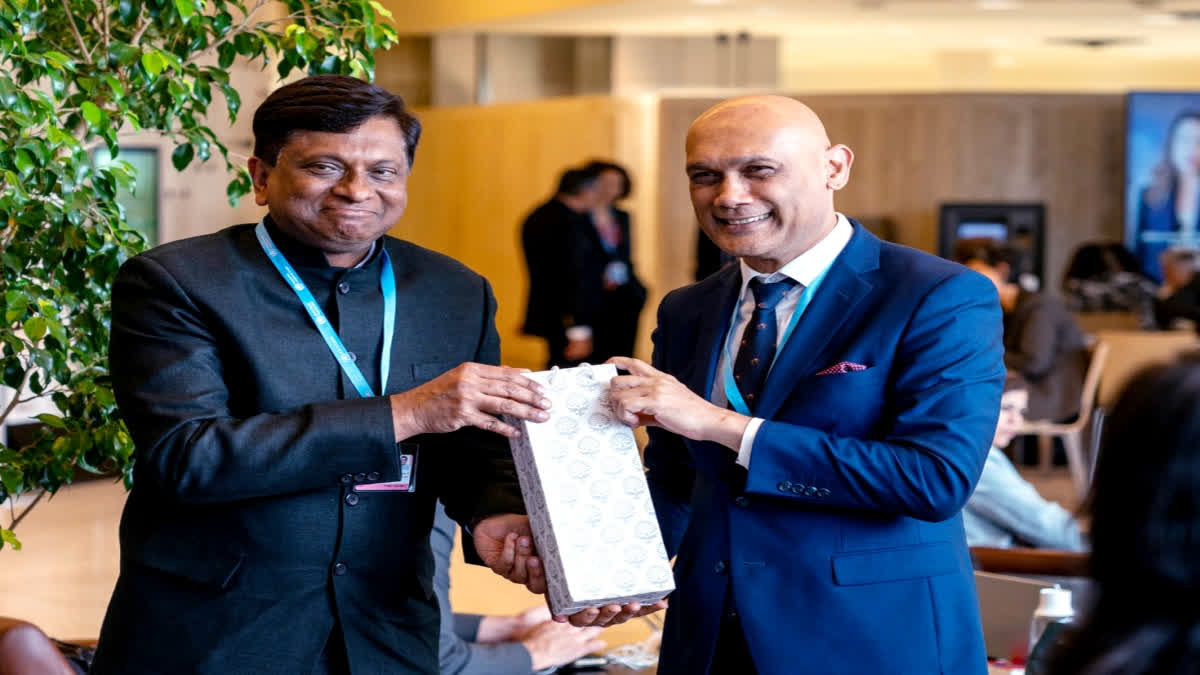New Delhi: Stating that over 75 per cent of the diseases that affect humans are zoonotic diseases, health secretary Apurva Chandra on Thursday said the Ministry of Health & Family Welfare is committed to preventing and managing risks at the human-animal-plant interface through the One Health approach.
"One Health is a multi-sector and multi-stakeholder initiative; collective and coordinated action is needed for its success at the ground level. Under the 'Pradhan Mantri Ayushman Health Infrastructure Mission' (PM-ABHIM), states are being strengthened in surveillance, prevention and management of zoonotic and other diseases. India's current legislative framework, with its separate laws for human health, animal health, and environmental protection, has some gaps and overlaps due to sectoral priorities. For implementation of One Health goals, we need support from the line ministries and the states,” said Chandra.
Chandra was speaking at a two-day multi-stakeholder National Consultation on Legal Environment Assessment for One Health activities. The Centre for One Health, National Centre for Disease Control, and Directorate General of Health Services are organising the multi-stakeholder consultation process. The consultation is being organised to brainstorm on the legal and policy perspectives on the core domains of One Health including IHR, Biosafety & Security, Zoonoses, Antimicrobial resistance (AMR), food-borne illness, and Climate Change and Health, etc.
The Health Ministry said that the 'One Health' approach which integrates the health of people, animals and the environment, is crucial for addressing complex health challenges such as zoonotic diseases, antimicrobial resistance, and food safety.
"India is ahead of several countries in drafting the legal framework to support and strengthen the implementation of the One Health initiative. This represents India's advanced thought process and leadership and showcases our vision in this area. A national consultation with multi-partners and stakeholders is not only important but very timely. COVID 19 has forced us to re-focus our attention on the importance of zoonotic diseases and the intricate linkages between the human, animal and plant ecosystems," said Dr Vinod Paul, Member (Health), NITI Aayog.
Paul said the issues of critical health challenges posed by zoonoses, antimicrobial resistance, food safety, and climate change are interconnected and require a comprehensive, multi-sectoral approach to breaking down the silos between human health, animal health, and environmental sectors.
"India has taken the lead in ensuring One Health goals that resonate with the Prime Minister's vision of 'One Earth, One Health' and we are pushing frontiers for not just our nation but for the world," he said. It is worth mentioning that the two-day-long consultation process aims to assess the current legal framework and identify strengths, gaps, and overlaps in the existing laws and regulations that impact One Health activities.
It also focuses on fostering multi-sectoral dialogue by bringing together stakeholders from government, academia, industry, and civil society to discuss legal challenges and opportunities.



